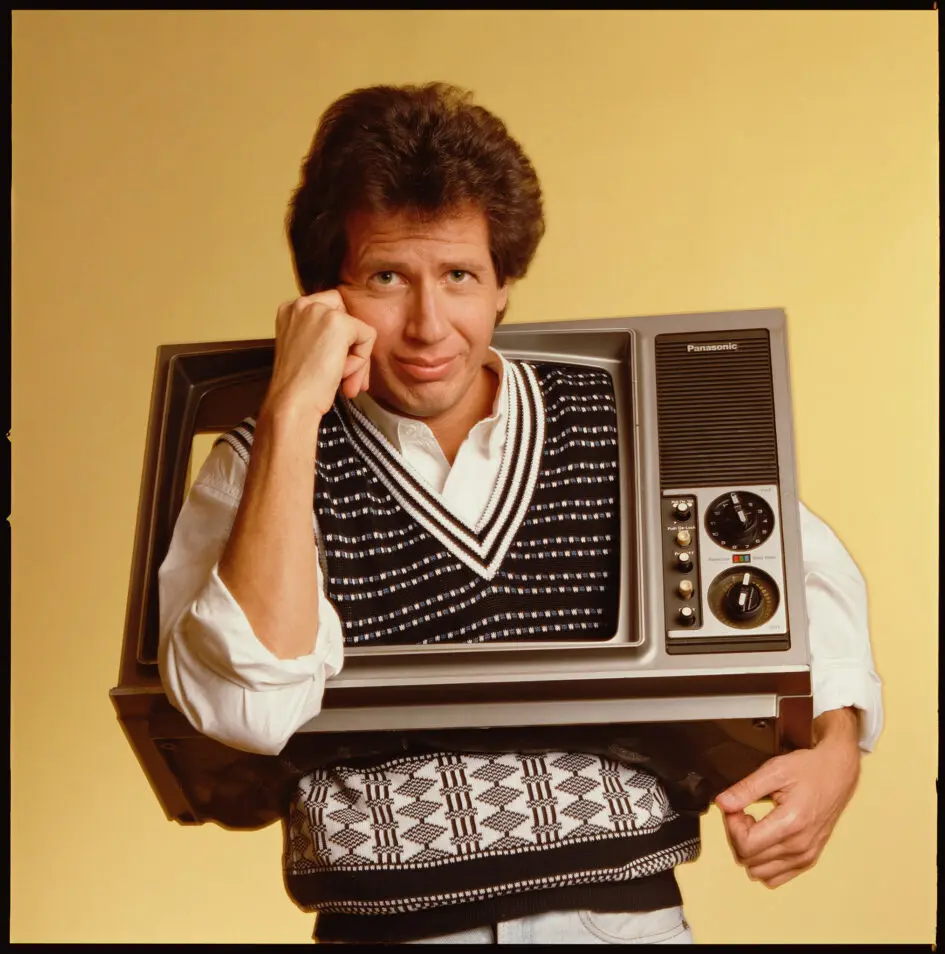Per Matt
Garry Shandling lived multiple lives, in terms of his success in Hollywood. Each time it looked like he had plateaued, he would break on through to a higher plane. And then, improbably, he’d top his past successes, creating even more pressure onto himself to improve. And ultimately, he did. Promoted as a film in two parts, The Zen Diaries of Garry Shandling is four hours of footage highlighting Shandling’s struggles of identity and his hope to turn his success into something positive in all of his high-maintenance, tortured, complex, defensive, neurotic, meditating glory, while battling with his inner demons.
Directed and produced by protégée Judd Apatow, this two-part documentary series presents archive footage, home movies and Garry’s journals, which he continued throughout his entire life. He was always interested in exploring human behavior, with his ultimate goal in life to appear on The Tonight Show. And after doing that, was sad he didn’t know what to do next.
In college, he’d write monologues during his classes and moved to L.A. after showing his writings to George Carlin. Being a television writer was almost second nature to him, as his writing credits were everywhere, from Sanford and Son to Welcome Back, Kotter. He sold jokes to others (especially for multiple Emmys shows), but didn’t have the guts to perform onstage. After experiencing a brutal car accident, he gave up his writing career to overcome his nerves as a comedian. That’s when he really developed a comic voice. But it didn’t develop overnight.
“The only thing worse than being on TV every night is wanting to be on TV every night.”
And after he fine-tuned his humor, he would eventually host The Tonight Show. But his greatest feats were creating two short-lived programs: It’s Garry Shandling’s Show and The Larry Sanders Show. Shandling was vulnerable, soft-spoken and had major problems dealing with insecurity and rejection, some of that came from losing his older brother to cystic fibrosis at a very young age. His mother never mentioned his brother’s death to him at the time and didn’t allow him to attend the funeral, eventually becoming very possessive to her son. This really helped to develop his comic voice.
But when he passed away at age 66, many people knew who Garry was, but they didn’t truly realize what he was all about. And I was shocked I didn’t know more about the man while he was alive. He was very influential in the way television shows were developed and many comedians today have a lot to thank him for.
“I don’t remember him sleeping. His work was his life.”
He started off mocking the industry, then eventually fell prey to it. He was very spiritual in his own way, as well as being very sensitive, seemingly tortured by show business. So, after devoting himself to his work, seeing him totally walk away to travel the world looked exhilarating for the man. Even when he briefly returned to show business as a voice-over actor in Over the Hedge, his pursuit of perfectionism was not lost.
Zen Diaries presents actors, comedians, authors and filmmakers discussing their interactions with Garry and stories about vanity, pride and pain they experienced with him to get a final, polished product. Growing up, my introduction to the comedian was the fourth-wall breaking It’s Garry Shandling’s Show (writers Al Jean and Mike Reiss went on to mold The Simpsons). While I’ve never seen The Larry Sanders Show, I’ve always wanted to watch it. Self described as art imitating life, and life imitating art, the show would ultimately an Emmy award. But more importantly, after appearing on Shandling’s show, David Duchovny, who adored the comedian, dragged Shandling into The X-Files‘ mythology. That was a highlight, as was his shady character in Captain America: The Winter Soldier.
Shandling struggled with betrayal the most, including that of his manager and many of his friends. In fact, the final Larry Sanders season was practically based on his manager, whom he sued for $100 million. The lawsuit’s legacy changed Hollywood forever, as you cannot be someone’s manager, while being the studio at the same time.
This documentary is very personal, making me sad at multiple parts, almost to the point of wanting to cry. It’s deep. Shandling’s identity crisis was real, but his ultimate acceptance of himself, despite dealing with PTSD (perhaps) was major. His confidence was hurt. His spirituality was hurt. But through his meditation, he became a better person. And seeing his very good friend, Bob Saget getting emotional was a highlight, as was Tom Petty’s multiple appearances throughout the years, which makes Garry, the person, let down his guard for just a minute or two while on camera (for his DVD extras, ‘natch).
There will never be another Garry Shandling. I totally recommend watching this doc as he was a very complicated person, actor and comedian. But the world is largely better for having his contributions.
